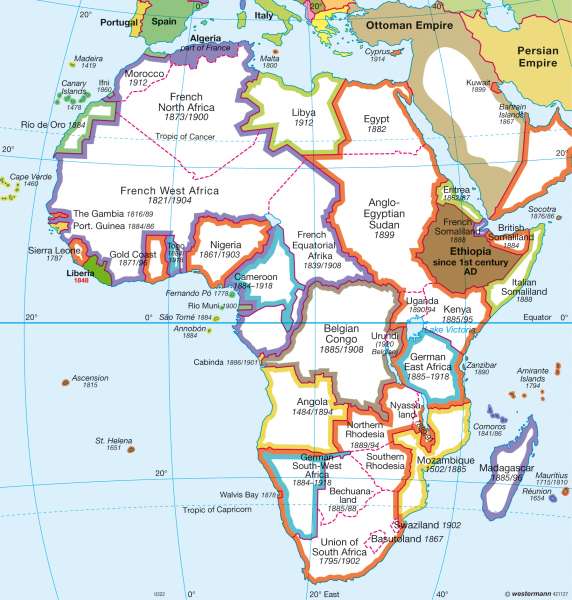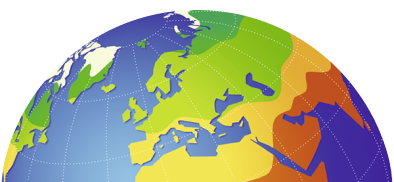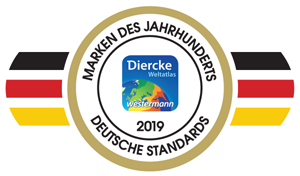Africa — 1914/1918
Africa - Countries and history
978-3-14-100790-9 | Page 154 | Ill. 2

Information
The colonisation of Africa was limited until well into the 19th Century, mainly due to European trading posts along the coast. The largest parts of the continent were under local control. An exception was the Cape Colony, originally a food station of the East India Company, to where to Dutch settlers immigrated in 1657. After their "Great Trek", the Boers had extended the white settlement with the proclamation of the "Boer State" in 1835/38. Other than that, privileged European trading companies in various coastal bases drove a brisk trade in African slaves and natural products; legally until 1820 and illegally until 1870. The interior of the continent remained largely unaffected, apart from initial expeditions and missionary ventures.Scramble for Africa
In the 1880's, colonialism reached a new level with the "Scramble for Africa", the race for African colonies, which marked the beginning of the classic era of imperialism. In a headlong competition, the European powers appropriated nearly the entire Black Continent by force in just about 15 years. Only Ethiopia on the East Coast and Liberia on the Atlantic remained independent, which was a result of the 1847 the merger of several settlements for freed black slaves from the United States and was recognised 1848/49 by the European powers.
The Berlin conference in November 1884, attended by the statesmen of Europe at the invitation of Bismarck, decided on the fate of Africa after imperial conflicts threatened to escalate in Africa. The conference led to an almost complete partition of the continent into spheres of interest and the subsequent occupied territories. The border demarcation was carried out mostly at random and didn't take into account any ethnic or cultural traditions.
Through strategic objectives such the "Cape-Cairo" railway plan, Great Britain sought to have a corridor between the Cape Province and the Mediterranean Sea. The British expansion was from the north and south. Cecil Rhodes first captured Bechuanaland and then Rhodesia. After the Boer War from 1899 to 1902, the whole area was combined as the Union of South Africa. In the north, Egypt was occupied and then Sudan, after the failed Mahdi uprising there. British Somaliland and Aden were used primarily to secure the shipping lanes to India.
The French, in the meantime tried to infiltrate the whole of West Africa from Algeria and Senegal. The project to create a major Sudanese unification failed in 1898 with the Fashoda crisis, when British and French troops faced each other in the region of the present-day Sudan. The threat of war was settled in 1899 by a compromise.
Bismarck was a typical 19th Century cabinet politician, but an absolute non-imperialist, and found it difficult to decide to resume the race for distant colonies. The areas of Togo, Cameroon, Southwest Africa, German East Africa and Zanzibar claimed by the German Empire were economically relatively uninteresting. In 1890, Helgoland was renamed Zanzibar through the Anglo-German Heligoland-Zanzibar Treaty.
In 1887, Italy conquered Eritrea and in 1888, Italian Somaliland. An attempt to annex Ethiopia failed and after the defeat at Adowa in 1896, its independence had to be recognised. In the Italo-Turkish war of 1911/1912, the Italians conquered the previously Ottoman colony of Libya.
European spheres of interest
Through the simultaneous raids in the north and south, British colonial possessions around the turn of the century were almost continuous from the Mediterranean Sea to the Cape of Good Hope. The only interruption was by German East Africa, which had fallen to the British Empire under an agreement between the European powers at the Berlin Conference of 1884/85 to partition Africa. The same thing happened with the other German colonies of Togo, Cameroon and South Africa when the administration of the League of Nations was put in place after the First World War. France had a large colonial empire in West and Equatorial Africa and also reached as far as Madagascar, and French Somaliland in north-eastern Ethiopia.
The Congo Free State was conquered from 1881 to 1885 by the Belgian King Leopold II and was declared his private ownership at the Berlin conference. Subsequently Leopold built the cruelest of all the European colonial empires, where the most brutal human rights violations were commonplace and in which millions of people died. The public outrage over these "Congo atrocities" was so great that he sold his interests there to the Belgian state in 1908, which then became the Belgian Congo.
Portugal extended its eastern and western coastal territories around the colonies of Angola and Mozambique. In 1912, when Italy seized Tripoli, Libya was the last African territory to come under a European power.
D. Bode, K. Lückemeier; Ü: C. Fleming




